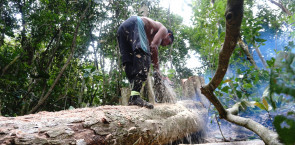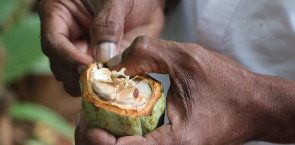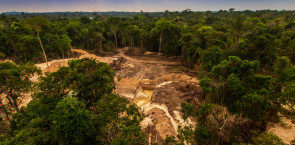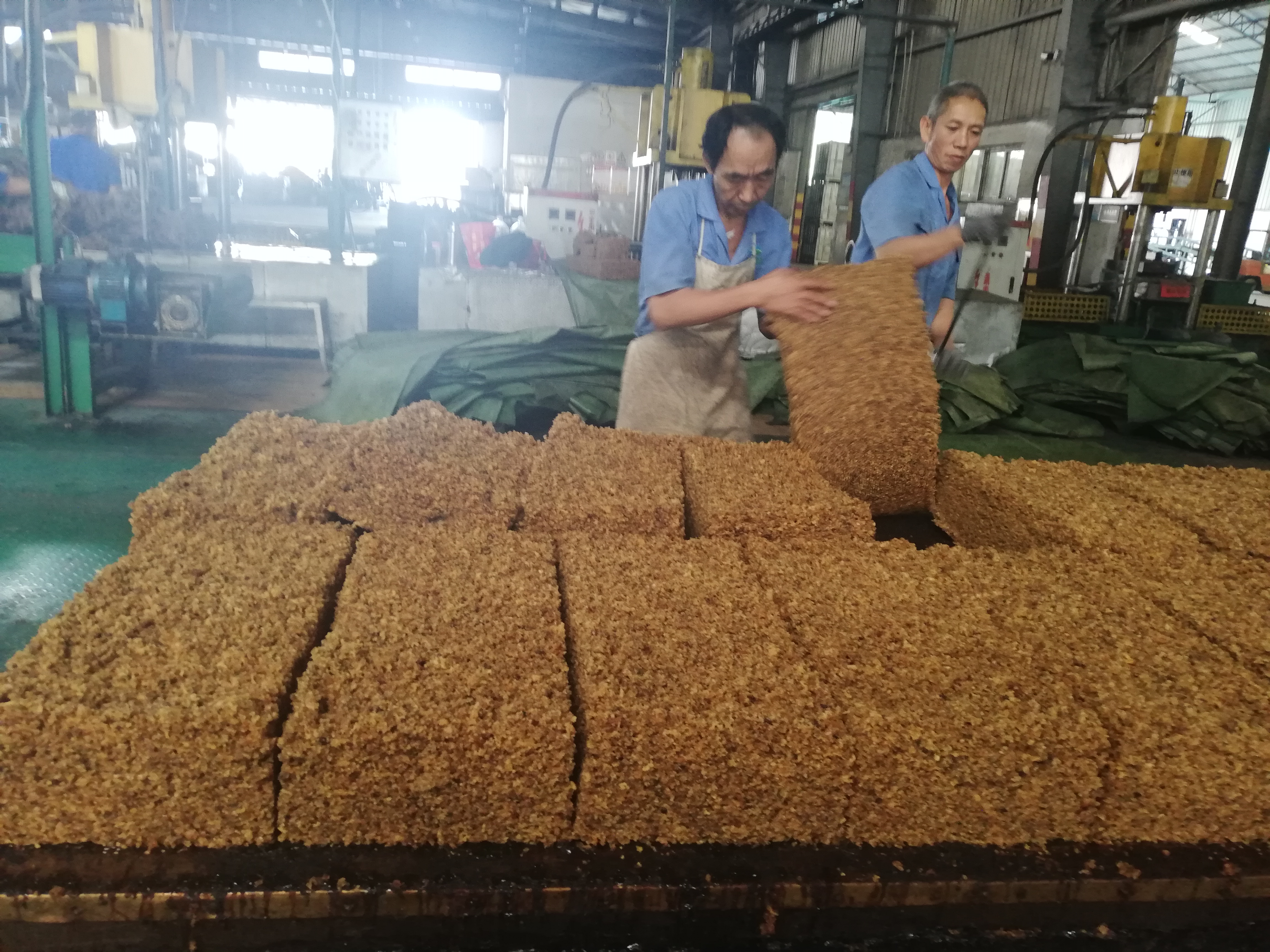
The European Union (EU) has introduced a law to prevent the import or export from the EU market, of products associated with deforestation and forest degradation such as natural rubber. The legislation requires companies operating in the EU to trace their rubber supply chains and conduct due diligence to ensure they are not linked to deforestation. Preferred by Nature is working with Chinese rubber stakeholders to help them align with the due diligence requirements of EU companies.
The due diligence requirements of the EU Deforestation Regulation (EUDR) may pose a challenge for some actors within the rubber industry in China, which is the world’s largest processor and consumer of natural rubber. The country grows approximately 1.2 million ha of rubber plantations, of which 90% come from Hainan and Yunnan provinces and over 80% are managed by smallholders.
The EUDR due diligence requirements involve three key steps: obtaining information, conducting risk assessments and risk mitigation. The information to be collected includes geolocation information which is the data that shows the exact location and size of the areas where the rubber is grown and harvested. Under the EUDR, a risk assessment is required to be conducted by EU companies, whereby the risk of non-compliance with the regulation’s requirements regarding the legality and deforestation-free nature of the commodity, is evaluated. The actions requested by EU companies pose significant challenges for the smallholders and processors in China, who are the main actors in the rubber supply chain.
In China, rubber processors, who buy raw rubber from farmers, play a critical role and are often controlled by tyre-making companies (EUDR operators). Some EUDR operators subject to EUDR, simply require rubber processors to gather all EUDR-specific information and geographical location data, carry out risk assessments on their behalf and demonstrate acceptance of the regulation. If the Chinese rubber processors fail to do so, they might lose their key clients and businesses, although they have no obligation under EUDR.
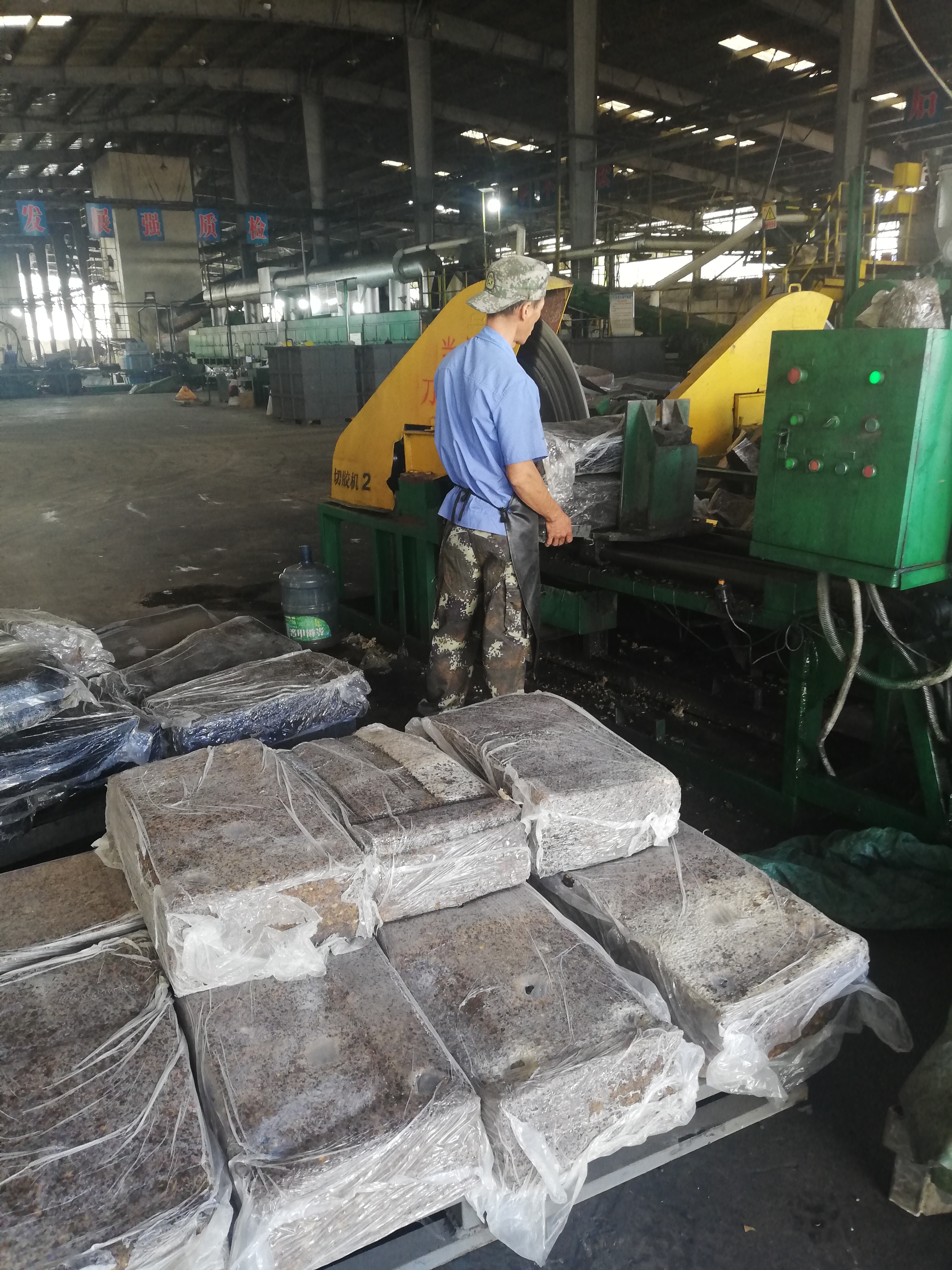
Many rubber processors are located close to the rubber’s source or origin in the plantation, giving them a natural advantage in obtaining information. However, limited capacity, knowledge and resources set several barriers for them. To overcome this challenge, rubber processors need to get technical support and work with all players upstream, including smallholders, to align with the legislative requirements of EUDR.
The market for natural rubber is characterised by frequent and unpredictable fluctuations in prices in China. In the last decade, the market price of natural rubber in China has decreased since reaching its peak in 2012. “It is very labour-intensive and no longer lucrative for some smallholders in this region who are not willing to tap rubber, especially in the areas that have low accessibility. This resulted in some smallholders shifting cultivation from rubber to other crops such as fruits and vegetables or working in factories for their livelihood, leaving behind rubber cultivation,” said Mr Zhang Zhenjiang, an owner of a 600-ha rubber plantation in China.
The complex supply chain of rubber involved in the production and distribution of natural rubber is intricate and involves multiple stages. A complex supply chain would include smallholder farmers, local rubber collectors, brokers (middlemen), processors, manufacturers, and distributors. Each intermediary adds a layer of complexity to communication and coordination among these stakeholders. This also leads to challenges in transparency and traceability in the rubber supply chain.
Obtaining geolocation information is one of the most crucial requirements of the EUDR. Smallholders are requested by the downstream rubber companies to map the boundaries of their plantation areas or plots, mark them with geo-localised coordinates and make this information available. This will provide accurate information on the location and size of the plantation areas.
A lack of capacity and a relatively low education level among smallholders in this region limit them from meeting this geolocation information requirement. The legal documents provided by the government such as landholding certificates do not provide geolocation information, and they don’t know how to capture it unless they have been provided external support or training, for example, using the app on a mobile phone.
Rubber processors want to ensure their rubber sources are low risk in relation to deforestation and legally non-compliant production. This is not easy, because they have to consider many factors, such as the incurring cost of securing traceability, a lack of capacity, and the complexity of the supply chain. If not aligning with the EUDR, these rubber procedures as well as smallholders may be more vulnerable to unforeseen challenges, including possibly being excluded from the EU market.
Embracing the EUDR challenges with training and collaboration
Recognising the complexities, several companies sought guidance from Preferred by Nature to navigate the new law requirements. Big Chinese tyre manufacturers, non-governmental organisations and associations are throwing their weight behind aligning with the EUDR, urging rubber plantations and processors to heed its guidelines and combat deforestation and climate-related issues.
In December 2023, Gaojun Zhao, Senior Sustainability Specialist at Preferred by Nature, visited three rubber companies in Yunnan province, southwest China. Home to 560,000 hectares of rubber plantation, Yunnan offered a microcosm of the industry's challenges and potential. Beyond an EUDR training to the rubber processors, Gaojun’s visit aimed to understand the concerns of companies, smallholders, brokers, and local governments and discuss possible solutions in a collaboration effort to meet EUDR.
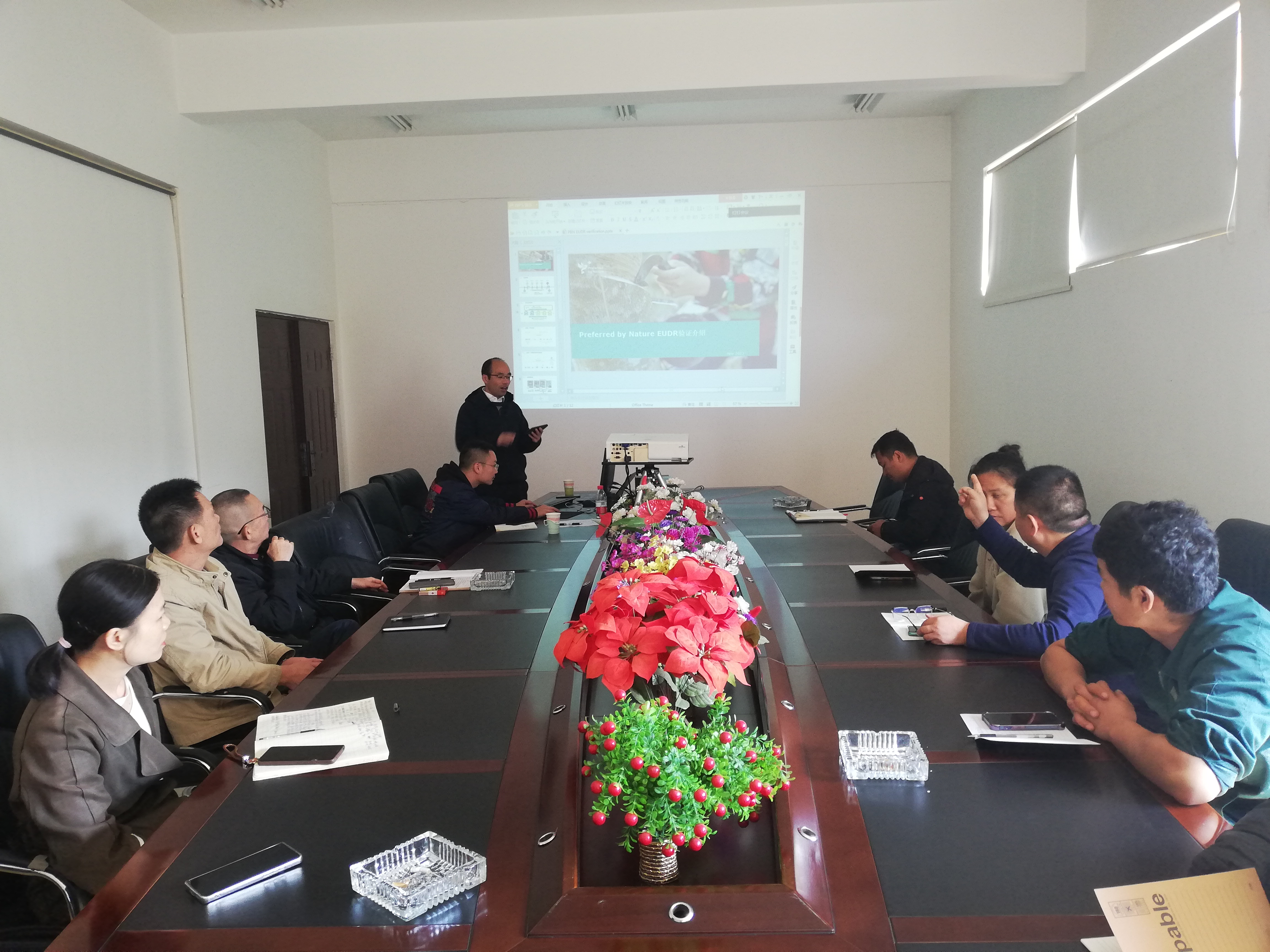
Unstable market prices, lack of ability to capture geolocation information by smallholders, traceability, and uncertainty of support from the government are the key challenges faced by the sector. "By face-to-face interaction, I strongly feel the rubber companies in China are keen to take proactive actions to respond to EUDR as requested by downstream value chain actors such as tyre and car makers, though many challenges are ahead’’, said Gaojun.
Preferred by Nature has been working with the rubber sector in various regions to improve natural rubber supply chain traceability and sustainability, including providing technical support to rubber companies for EUDR compliance.
“We are working to provide the sector with some solutions that will help them adapt to the local context. Among them, engaging with smallholders and providing them with appropriate information, knowledge, and support that are essential in meeting the EUDR criteria at the ground level. These include training, supply chain mapping, due diligence tools, particularly collection of geolocation information," he added.
To learn more about how Preferred by Nature is supporting the rubber sector, please click here.
Cover photo courtesy Gaojun Zhao / Preferred by Nature.

